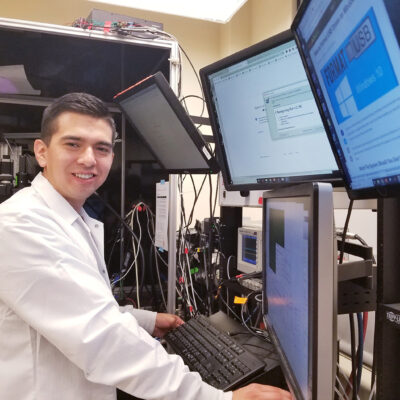Daniel Quintana Sciences
Contribution of Vasointestinal Peptide Interneurons to Visual Size and Contrast Perception
In mammals, detecting weak stimuli is crucial for animal survival. One way they could detect weak stimuli is spatial integration, pooling together weak signals over an area of visual space to strengthen the signal. In the cortex, vasointestinal peptide (VIP) cells are a group of interneurons that have a central role in pyramidal cell tuning and response modulation of other interneurons. However, the mechanisms behind how signals from different inhibitory interneurons affect the codification of sensory stimuli into percepts remains unclear. He will optogenetically activate and inhibit VIP interneurons in visual cortex in mice. The outcomes of this project might enhance our comprehension of neuronal circuits involved in sensory perception and provide new approaches to understand mental diseases that are associated with structural and functional changes in the cortex.
